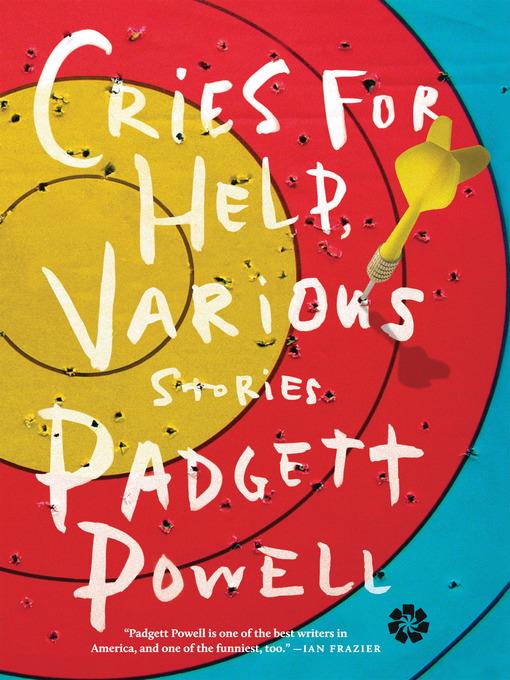
Cries for Help, Various
Stories
کتاب های مرتبط
- اطلاعات
- نقد و بررسی
- دیدگاه کاربران
نقد و بررسی

June 29, 2015
Powell (Edisto) has occasionally been pigeonholed as a sort of Southern Donald Barthelme, and it is true that most of the 44 stories collected here can be described as short comic tales with a distinct Dixie swagger. But these stories offer even more, such as the emotional vigor of “Spy,” in which an aging father comes to suspect that his daughter is working for the CIA (“My daughter wears a wire, I a diaper”) or the pathos of “A Local Boy,” in which a rock-bottom loser blames his shortcomings on Sherman’s March. Other stories imagine a grade school friendship between Charles Dickens and Janis Joplin (“Joplin and Dickens”) and take the point of view of a recluse considering investing in a Ukrainian mail-order bride (“The Retarded Hermit”); several (“Wagons, Ho!” and “The New World”) meditate on the settling of America. There’s also a pair of companion pieces to Powell’s The Interrogative Mood (“The Imperative Mood” and ”The Indicative Mood”) and a strange trilogy about Boris Yeltsin. But the best of these stories—and they’re all good—plumb for depth and coax profundity out of the moody detritus of Americana. Powell’s range is matched only by his sense of play, and this book is a skeleton key to an extremely gifted and quintessentially American writer, at home in any form.

July 1, 2015
A playful and provoking clutch of stories that forces words and themes into unfamiliar territory. In 2009, veteran literary gamesman Powell (You & Me, 2012, etc.) published The Interrogative Mood, a novel told exclusively in questions. Two of the 44 (usually brief) stories here are sequels of a sort. In "The Imperative Mood," demand piles up on demand ("Prepare your backpack. Line up all the Velcro closures in your environment"), in time suggesting the flimsiness of advice and of the demands we make on others. Similarly, "The Indicative Mood" layers factual statements to reveal the hollowness of information without context. Many of these stories can be read as satires of common literary tropes, though Powell's language is so slippery and spiky they don't usually qualify as outrightly comic. Stories like "Horses," "Dusk," and "Wagons, Ho!" dismantle Western themes, and "Spy" is a brief sendup of espionage tales narrated by a man whose teenage daughter works for the CIA ("Trying to find out where she has been on a Saturday night may be a breach of national security"). Powell's loopiness can be fun: the narrator of "Change of Life" contemplates buying a "Government Cookie Flyer," and while the nature of that contraption is never explained, the critique of irrational covetousness gets over. But many of these stories are so slathered in non sequiturs that it can be hard to find a toehold. A sketch about "meat-shirt-making monks"? Janis Joplin and Charles Dickens imagined as high school classmates? Powell's given fair warning-"We are not in the zone of logic"-but puzzling out his rhetorical feints is often more exhausting than rewarding. Powell has great fun with abstraction that harks back to Barthelme and the Modernists, though not every riff registers.
COPYRIGHT(2015) Kirkus Reviews, ALL RIGHTS RESERVED.

























دیدگاه کاربران